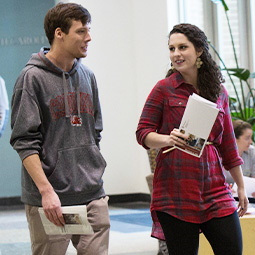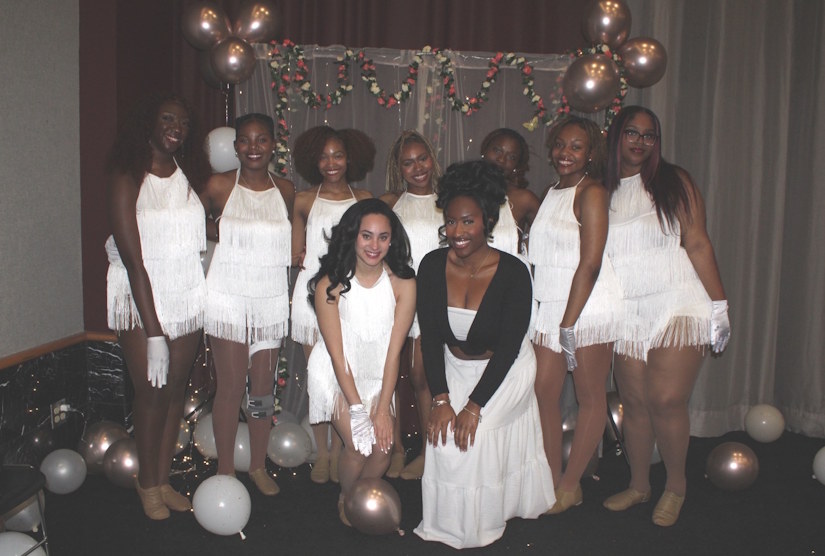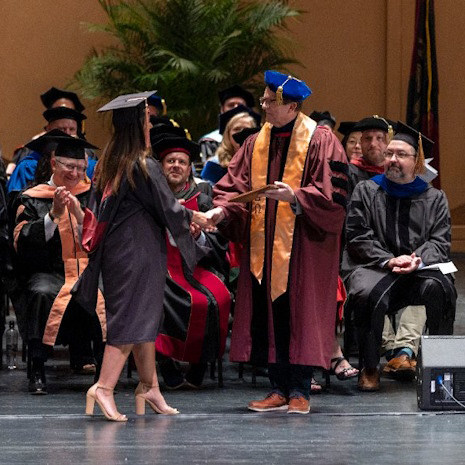
Study Public Health
The Bachelor of Arts (B.A.) curriculum is for students who want to apply the degree to social and behavioral sciences, while the Bachelor of Science (B.S.) is for students who are interested in a broad-based natural science.
April 8, 2025 | Erin Bluvas, bluvase@sc.edu
“My time at USC has shaped me into the leader I am today,” says Bethany Cotton. “I have worked hard to have a lasting impact, from founding the first majorette team on campus to serving as treasurer for Habitat for Humanity. These experiences have solidified my passion for advocacy and leadership, and I am confident they will propel me into a successful career in health care administration.”
Originally from Greenville, South Carolina, Cotton moved to the Midlands because USC offered many different programs and organizations where she could take action in her community. Her various leadership roles and volunteer activities – along with a strong foundation from the only accredited school of public health in the state – cemented Cotton’s commitment to a career in health care. After graduating in May, she will take her next steps into the field by enrolling in MUSC’s Master in Health Administration program.
“Health care administration is more than a career choice for me, it’s a mission deeply rooted in passion,” Cotton says. “My journey began in community service but evolved as I found ways to blend my leadership, compassion, and problem-solving skills into meaningful work.”
At the Arnold School, Cotton found a mentor in clinical associate professor Charlotte Galloway, whose own passion for public health inspired and encouraged Cotton to explore areas she had not previously considered. In addition to shadowing professionals at Prisma Health, she contributed to numerous campus-based organizations that engage the surrounding community and bolstered her leadership skills (e.g., Health Occupations Students of America, Health Care Leadership Association, Clemson-Carolina Blood Drive Committee, Miss Gamecock Pageant, Close Family Emerging Leadership Program, Carolina Health Entrepreneurship and Policy, Habitat for Humanity).

One of the projects Cotton has found most fulfilling has been the launch of Elegant Essence, USC’s first Black majorette group, which she co-founded with public health classmate Kendall Adams-Montgomery. Establishing this student-led group took several semesters and began when Cotton came to college looking for a community that embraced and integrated many different cultures.
“I wanted to be in an atmosphere where I could learn from the diverse students at USC,” she says. “This inspired me to ensure that African American culture was heard on campus, so I established a safe space for African American women to express themselves while also having the opportunity to grow in their health journeys.”
Cotton says that performing in front of thousands of fans during halftime at a women’s basketball game in February was a surreal moment that she will never forget. The group also competed in a Carolina’s Got Talent event and presented a Spring Dance Showcase on Greene Street.
After graduating, Cotton will continue growing her health care knowledge and leadership skills. Her goal is to make a lasting impact on underserved communities by improving health care accessibility, efficiency and equity.
“College is always a great opportunity to thrive in a new environment, but specifically in Columbia, I was able to meet new people and start exploring different parts of my life, especially my leadership skills,” Cotton says. “I will carry the lessons, experiences and relationships I’ve built at USC with me, ensuring that I continue to make a meaningful difference wherever I go.”

The Bachelor of Arts (B.A.) curriculum is for students who want to apply the degree to social and behavioral sciences, while the Bachelor of Science (B.S.) is for students who are interested in a broad-based natural science.

The Arnold School is proud of our 2025 graduates, who will go on to change the world locally and globally. Learn about some of the other outstanding individuals who completed one of our 34 programs this year.